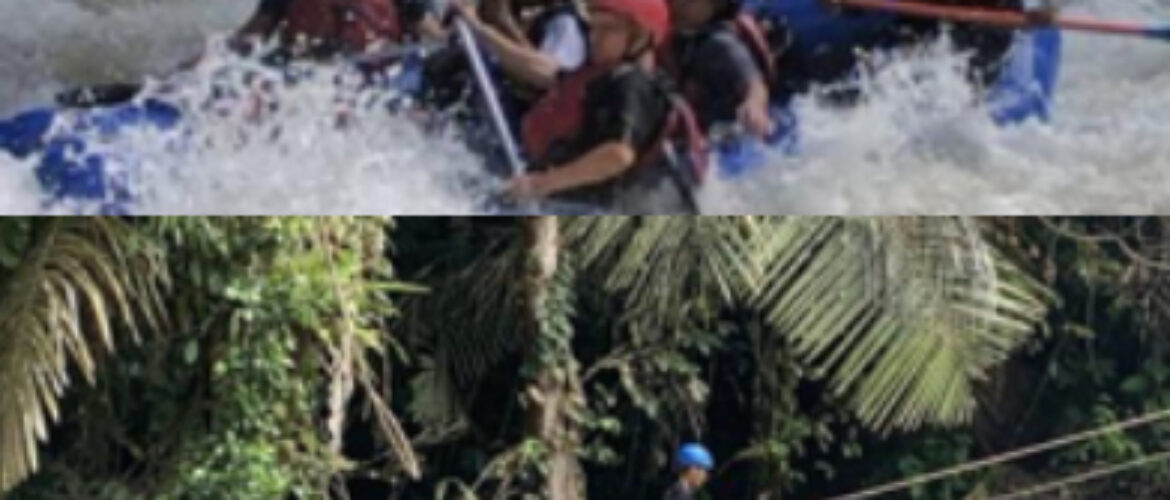The ‘Building Urban, Low-income Community through a Sport-for-Development Youth Empowerment Program’ project aimed to develop a pilot program initiated through the WLO Strategic Priorities Grants (SPGs) program 2021. It was undertaken in the period from January 2022 to February 2023 and facilitated by the Institute for Social Science Studies (IPSAS), University Putra Malaysia (UPM). For this program, youth from the Seri Cempaka Youth Association (PBSC), located in a low-income, underserved, urban community in Kuala Lumpur were recruited to be recipients of a leisure-based sports for development (SFD) program that was designed to promote development of life skills.
The project began with a community needs assessment with youth and adult leaders from the Seri Cempaka community. A series of engagements were then held with the PBSC youth leaders (called SFD leaders) from where four life skills were identified for the project: Courage, Confidence, Communication, and Responsibility. Once these life skills were identified, the SFD leaders attended a Training-of-Trainers (ToT) program at IPSAS-UPM.
After the training, the SFD leaders were empowered to determine which sport activities were to be organized for the youth from the Seri Cempaka community, targeting the four life skills identified. From there, the SFD leaders group presented their draft proposals with content, timeline, structure, and logistics of the programs. Subsequent meetings followed with additional feedback and ultimately finalization of the proposals. The SFD programs were held in January 2023. The first program was a half-day event held at a local football field. It comprised two activities – football and handball – with 20 participants (10 boys/10 girls). The two programs had a motivational tagline of “G.R.E.A.T.” (GREAT GENERATION).
In the first program, two SFD leaders facilitated the groups through a series of games and drills that were designed to enhance participants’ interest in the two sport activities and to emphasize the importance of communication – verbal, non-verbal, and group—with their teammates. In the football activity, the participants had to dribble the ball from one point to another zigzagging between cones that were lined up in a straight line while blindfolded with a teammate providing support. A second football-related activity required the participants to work in pairs where they were given a long thin cloth to lift the ball and move it from one end of the pitch to the other. If the team dropped the ball, they had to start over.
The second activity was handball, where participants formed two lines facing each other. Participants were asked to pass the handball from one person to another until the ball reached the end of the line. They started with one ball which then increased to four balls. As the ball passed up and down the respective lines, the participants had to communicate with one another to avoid dropping the balls. If a player dropped the ball, he/she had to leave the game. This is where the participants learned different ways of communication when faced with challenges while under pressure. They were forced to think on their feet while communicating in a directive manner. After the sessions, a reflection session was facilitated with the participants by the SFD leaders to assess what they learnt about communication and how it contributed to the success of the activity.
The second program consisted of two days of outdoor based ‘extreme sports’ activities. This program was held outside of Kuala Lumpur in a neighboring state of Perak, which is around three hours by bus. This program comprised three activities: waterfall abseiling, Flying Fox on a zip line, and whitewater rafting. Waterfall abseiling entails descending down a rocky cliff over cascading waters running from the top of a hill while holding on to a secured rope with belayers at the top. Flying Fox entailed sliding on a steel wire cable over a lake secured by harness and carabiners. These two activities on the first day promoted the life skill of self-confidence.
The second day’s activity was the most challenging and included a two-hour, seven- kilometer whitewater rafting adventure over fast-flowing river rapid waters, challenging rock obstacles, and steep drops. The group was divided into seven rafting teams with 4 to 5 members to each raft guided by a professional guide/instructor. Groups were briefed on safety procedures, including wearing life jackets and helmet, and while on the river, how to balance, shift the body, capsize procedures, and overcome rocks. These activities promoted confronting and overcoming fear, promoting self-confidence, being positive, and the critical importance of teamwork and mutual trust when confronted with dangerous situations and challenges. Teamwork was also very important to navigate the raft, as well as caring for the team members in the raft. In the end, the rafting was a success with everyone taking the challenges positively and, in their stride, happily. It was a memorable experience for everyone. The young participants had no complaints about the two-day adventurous sport activities.
Following the programs, a survey evaluation was carried out with the program participants. The youth were asked to respond to each item from a pre- and post-program perspective to determine whether they perceived an increase in the targeted life skills as a result of their participation in the programs. They were also asked whether they would be interested in future sports-based leisure programs. The results indicated increases in all four life skills. Nearly 80% expressed a strong desire to join future leisure-based programs.
Qualitative interviews were also conducted with two of the lead SFD program leaders, Mr. Syed Bukhari, the Assistant Secretary of PBSC, and Mr. Sharifudin Mohamy, the Deputy Director of PBSC. Both SFD leaders perceived the program as a positive experience for the participants. As a low-resource, urban population, PBSC youth members are rarely afforded opportunities to experience youth programs outside of the city. The two leaders commented that being able to experience leisure sports outside in the natural environment opened the participant’s eyes to a new reality and helped take them out of their comfort zones. While the programs were short in duration, both participants felt that the programs were a success and should be continued in the future. They further commented, however, that the challenges of being responsible for the participants’ safety, given the high-risk levels of the activities selected, made the program a challenge to facilitate. But in observing the participants acquire new skills such as increased self-confidence and communication, the two leaders felt that the risks taken were worth the effort. They further expressed their satisfaction collaborating with UPM and felt that the UPM project team helped the two grow as facilitators as it was their first time attempting a life skills program using sports as a focal point and vehicle.





Leave a Comment